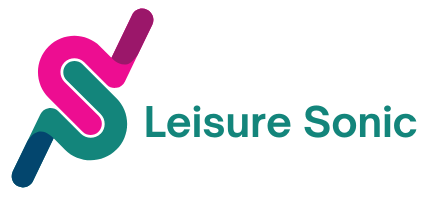Table of Contents
ToggleIn a world where software rules the roost, Software as a Service (SaaS) careers are like the golden tickets to the tech wonderland. Picture this: you wake up, sip your coffee, and log in to a job that’s not just about crunching numbers but revolutionizing how businesses operate. Who wouldn’t want that?
SaaS isn’t just a buzzword; it’s a booming industry bursting with opportunities. From savvy developers to creative marketers, there’s a spot for everyone in this digital playground. With companies racing to adopt cloud solutions, the demand for skilled professionals is skyrocketing. So, if you’re ready to swap your mundane 9-to-5 for a dynamic career that promises growth and excitement, buckle up! The SaaS journey is just getting started, and it’s time to grab your surfboard and ride the wave.
Understanding SaaS Careers
SaaS careers offer expansive opportunities in a growing field. The demand for skilled professionals continues to rise as businesses rely on software solutions.
What Is SaaS?
SaaS stands for Software as a Service. It provides access to software applications hosted in the cloud rather than on local servers. Users typically access these applications via the internet, allowing for seamless updates and easier collaboration. Examples of popular SaaS products include Salesforce, Google Workspace, and Slack. Companies prefer SaaS due to its cost-effectiveness and ease of use. Businesses benefit from subscribing to software rather than managing installations on individual devices.
Importance of SaaS in the Job Market
SaaS significantly impacts the job market. The industry is projected to grow from $157 billion in 2020 to over $300 billion by 2026. Such growth creates numerous roles in development, customer service, marketing, and sales. Higher demand translates to competitive salaries and career advancement opportunities. Professionals with skills in SaaS technologies, data analytics, and cloud services are particularly sought after. Those transitioning into SaaS careers find a vibrant workplace culture and innovative thinking.
Types of Careers in SaaS

SaaS careers encompass a variety of roles across technical and non-technical domains. Professionals can find exciting opportunities tailored to their skills and interests.
Technical Roles
Developers play a crucial role in building and maintaining SaaS applications. They work with programming languages such as Python, Java, and Javascript, focusing on code quality and performance. Software engineers often collaborate with other teams to implement new features and resolve bugs. Data analysts utilize tools like SQL and Tableau, providing insights that drive business decisions. Cloud architects design the infrastructure for hosting applications, ensuring security and scalability. DevOps engineers streamline the development process through automation and continuous integration. Each technical role demands a blend of programming proficiency and problem-solving skills.
Non-Technical Roles
Marketing professionals are vital in promoting SaaS products, crafting strategies to attract potential customers. They analyze market trends and customer feedback to tailor campaigns effectively. Sales representatives build relationships with clients, demonstrating product benefits and addressing concerns. Customer support specialists handle inquiries, ensuring a positive experience for users. Product managers oversee the development process, bridging the gap between technical teams and stakeholders. Human resources teams focus on recruiting top talent and fostering a positive workplace culture. Each non-technical position contributes significantly to the overall success of SaaS companies.
Skills Needed for a SaaS Career
A successful SaaS career requires a mix of technical and soft skills to thrive in this dynamic environment. The following sections outline the critical skills professionals should hone.
Key Technical Skills
Proficiency in programming languages, such as Java, Python, or JavaScript, stands out as a foundational skill for developers. Knowledge of cloud platforms like AWS, Azure, or Google Cloud enhances the ability to design robust applications. Familiarity with data analysis tools like SQL or Tableau enables individuals to extract valuable insights from customer data. Understanding of APIs and integrations allows seamless connectivity between various software solutions. Those in DevOps roles benefit from expertise in CI/CD pipelines and automation tools, streamlining development processes. Each of these technical skills plays a vital role in driving innovation within the SaaS industry.
Essential Soft Skills
Effective communication skills contribute significantly to team collaboration in SaaS environments. Adaptability enables professionals to pivot strategies based on evolving market demands or emerging technologies. Problem-solving abilities help individuals tackle challenges swiftly and efficiently. Critical thinking supports data-driven decision making, ensuring strategies align with business objectives. Additionally, strong customer service skills enhance relationships with clients, fostering loyalty and retention. Cultivating these essential soft skills empowers professionals to excel in their SaaS careers.
Career Growth Opportunities in SaaS
SaaS careers offer numerous pathways for professional growth, catering to diverse skill sets. In this expanding field, progression often aligns with both expertise and interest.
Advancement Paths
Advancement in SaaS roles typically follows a clear trajectory. Entry-level positions often lead to more specialized roles, such as moving from a software developer to a lead developer or an architect. Professionals can also transition from customer support roles into product management or sales leadership. The increasing demand for SaaS solutions encourages organizations to promote talent internally, as strong performance and skill development lead to senior roles. Networking and professional engagement further enhance advancement opportunities, allowing individuals to solidify their status in the industry.
Certifications and Training
Certifications hold significant value in the SaaS landscape. Acquiring certifications in cloud platforms, such as AWS Certified Solutions Architect or Microsoft Azure Fundamentals, boosts marketability. Training in data analytics tools like Tableau or SQL enables professionals to analyze and leverage data effectively. Many organizations offer internal training programs, providing valuable resources for personal development. Online courses from platforms like Coursera or Udemy expand knowledge and adaptability, equipping individuals with the skills necessary to excel. Continuous learning fosters innovation, a vital component in the competitive SaaS environment.
Challenges in SaaS Careers
SaaS careers present unique challenges that professionals must navigate. Understanding these obstacles can prepare individuals for a successful journey in this dynamic industry.
Industry Competition
Intense competition characterizes the SaaS landscape. Many skilled professionals vie for limited positions, making job security a concern. Companies often seek those with specialized knowledge or relevant experience. Job seekers need to distinguish themselves to secure desirable roles. Crafting a standout resume and building a strong online presence can give candidates an edge. Networking within the industry helps connect with potential employers and unearth opportunities. Continuous learning and skill enhancement also play crucial roles in rising above the competition.
Keeping Up with Technology
Rapid technological advancement presents a significant hurdle in SaaS careers. Professionals must adapt to new tools and platforms that frequently emerge. Staying current with trends in cloud services, data analytics, and programming languages is essential. Regular training and online courses equip individuals with necessary updates. Creating a routine for continuous learning fosters long-term career growth. Understanding trends also enables proactive responses to changes in the market, ensuring ongoing relevance in the field. Balancing time for learning with job responsibilities remains a vital strategy for success.
The SaaS industry presents a wealth of career opportunities for those willing to embrace its dynamic nature. With the continuous growth of cloud solutions and software applications, professionals can find fulfilling roles that align with their skills and interests. As businesses increasingly rely on SaaS products, the demand for talent in both technical and non-technical positions will only continue to rise.
For individuals looking to transition into this field, cultivating essential skills and staying updated on industry trends is crucial. Networking and pursuing certifications can enhance marketability and open doors to advancement. Embracing a mindset of continuous learning will ensure that professionals remain competitive in this ever-evolving landscape. The journey in SaaS is just beginning, and the possibilities are limitless for those ready to take the leap.





